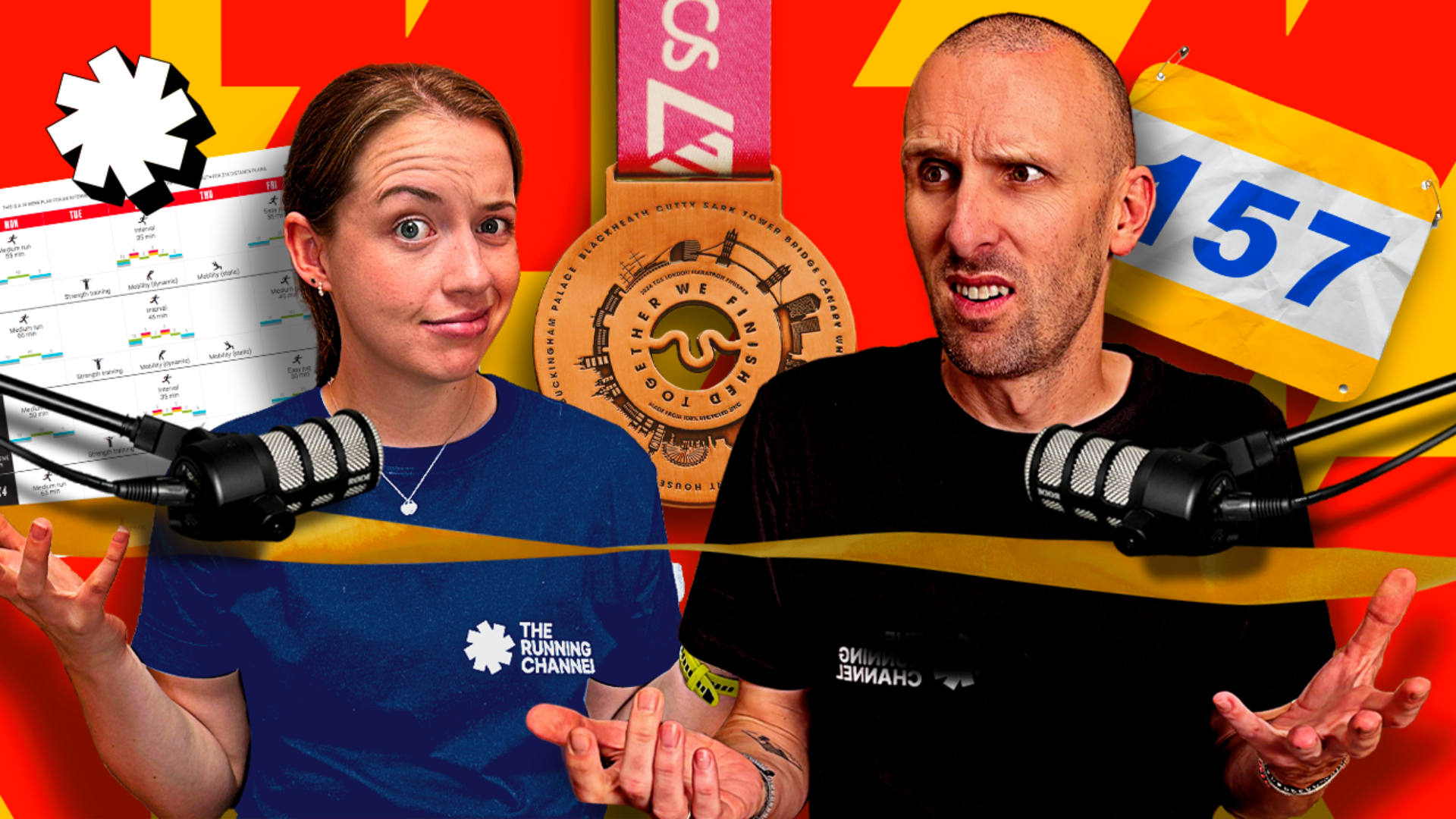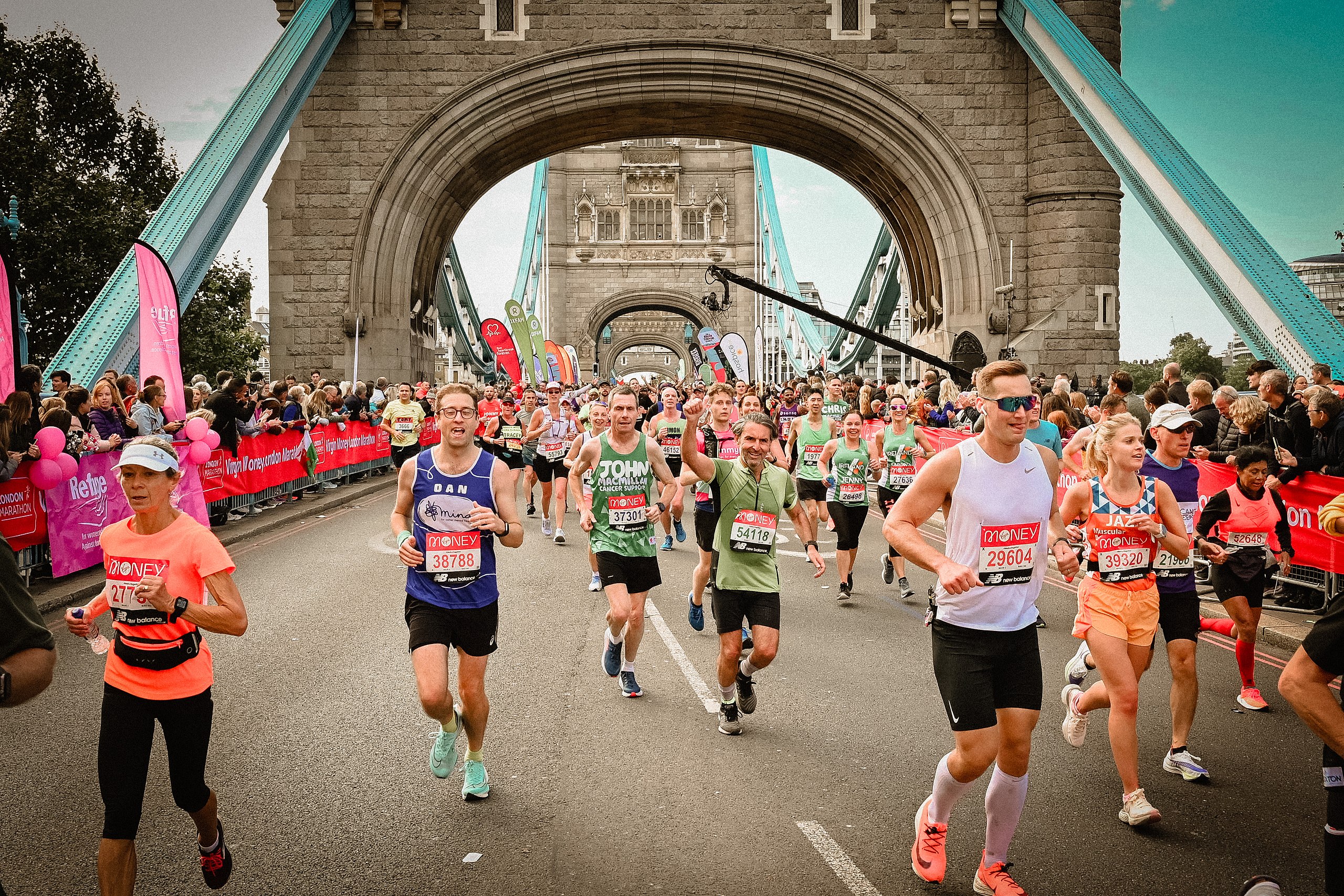How To Train For A Spring Marathon

If you’ve signed up for a spring marathon, then we’ve put together all of the most important stories we’ve written about marathon training to help guide you through to race day and beyond.
Here we’ve covered everything you need to know about training for a marathon.
MARATHON FUNDAMENTALS
Let’s start with the basics so you know exactly what you’ve signed up for: this is how far a marathon actually is (and the reasons why it’s that exact distance).
Another important one to know early on: this is how long it takes to train for a marathon.
UNDERSTANDING DIFFERENT TYPES OF RUNS
You’re going to see lots of different types of runs in your training plan, with names like fartlek, tempo and strides, so we’ve explained every type of run for you. And remember the 80/20 rule!
Each week you’ll do a long run, which will get progressively longer. This is what you can expect your longest run in marathon training to be.
At some point in your training, you might be wondering how you can get quicker. Here’s some good advice on how to run faster.
Three of the Abbott World Marathon Majors take place in spring (technically it’s four if we include Sydney, right?). Of those, the Boston Marathon is a notoriously challenging and hilly course, so we’ve got some specific tips for how to train well for the Boston Marathon. Similar advice can help you run any hilly marathon (like Sydney!).
Here’s Andy guiding Tom through all the different runs and paces he might do in a week of training.
RUNNING SHOES & GEAR
You’ll need some good running shoes. Here’s a guide to a full running shoe rotation. All you really need to begin is a good pair of daily trainer running shoes, though some runners also like to have carbon plate shoes for race day and some speed sessions.
Signing up for a spring marathon means we begin training in the winter, and for many of us that means it’s cold. Here are some top tips on how to run in the cold.
You’ll want to think about how to carry things on a run, including how to take water or other drinks.
NIGGLES & HOW TO RECOVER
Do you want to know what actually happens to your body during a marathon? If so, here’s Sarah and Mo talking more about what you can expect.
Most runners develop aches and niggles during their training. We’ve got tips on niggles vs injuries, and how to deal with them. Just remember: if you’re concerned about any discomfort then see a sports physio who can give you the best advice.
Recovery is going to become really important for you, so here are five steps to help you recover from a run, including why sleep is crucial.
NUTRITION, CARBS & AVOIDING THE WALL
Are you looking for a boost in your training? Here are some legal performance enhancers for runners. One of the most powerful supplements for a lot of runners is caffeine.
You’re going to want to learn more about carb-loading before your race, but don’t forget to also do smaller carb-loads before every long run. And here’s some breakfast ideas for runners to give you the energy you need for those big efforts.
Talking of fuel, here’s how to avoid hitting the wall in a marathon. Hitting the wall is something a lot of runners fear, but if you train well and fuel right, you can smash straight through it!
TAPERING FOR YOUR RACE
We’re getting close to race day now, and it’s time to taper for your marathon. Just watch out for the maranoia!
You’ve made it to the final week before race day, so here’s Jess with her top tips on how to get through the final preparations.
RACE DAY
Race day is here, and these are our top tips for all the mistakes you need to avoid. And here’s James sharing some of the biggest mistakes he’s made in the 40 marathons that he’s finished.
You’ve done it and it’s time to celebrate, but your body might have other ideas and we sometimes get ill after a race and pick up runner’s flu. Oh, and if you happen to get sick during training, then don’t panic. Here’s some advice on running with a cold.
Now the race is over, know that it can take several weeks to properly recover from a marathon, so take it easy after your race. Some people like to begin jogging again after a few days, but others choose to take a few weeks completely off from running. Listen to your body and what feels right for you.
WHAT’S NEXT?
Do you fancy running some other races? Here are the best US marathons which aren’t the Majors and here are some autumn marathons we recommend.
***
Join us in The Running Channel Club! It’s our supportive online community of runners where you can make connections with like-minded runners, get motivation on-demand with our exclusive content and podcasts, access expert guidance through courses and live Q&As, and talk with others who are going through their own marathon training.
Find out more about the The Running Channel Club benefits here and you can also sign up to our newsletter today to receive all the latest tips and news from The Running Channel.



























Running News
Ingebrigtsen Stars at World Athletics Indoor Championships 2025 – Plus All The Winners!
Sam Ruthe Is First 15-Year-Old To Run A Four-Minute Mile!
Eliud Kipchoge Will Run The 2025 Sydney Marathon!